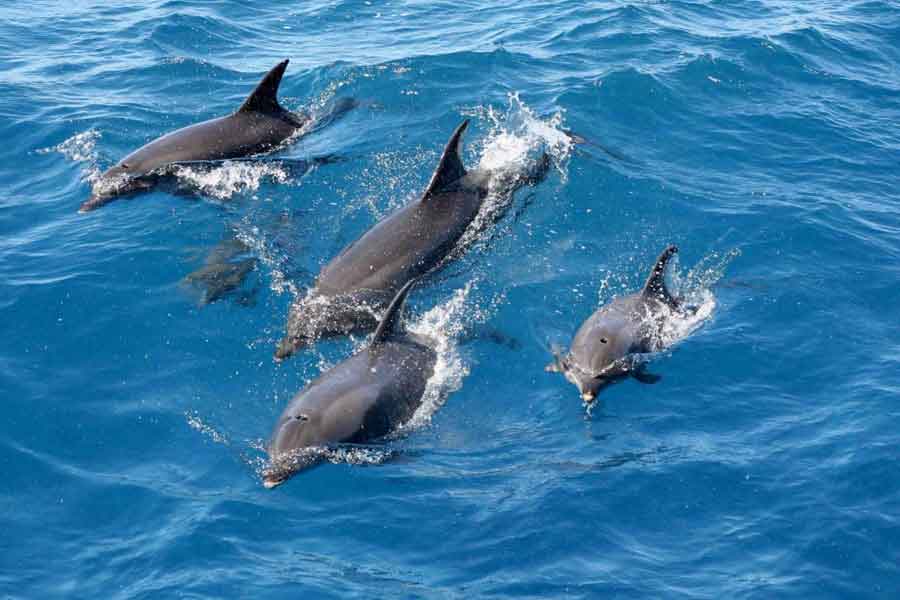
Few groups of marine animals are as closely connected as dolphins. They live in tightly-knit pods where social life seems to be an urgent necessity. Anyone who has been in the water with a group of wild dolphins will have noticed that they are always touching and rubbing against each other, as if they need to feel the close contact of their fellow beings.
The renowned Cousteau wrote in his books that isolated individuals appear to be abnormal or accidentally separated from their tribe. He also stated that social segregation leads to the death of solitary dolphins. What is most surprising is that their death is not caused by a physical deficiency (such as the inability to find food) because a dolphin is capable of sustaining itself. Instead, it is due to stress or emotional causes, as autopsies have shown that they literally allowed themselves to die.
Among the various cooperative activities they engage in daily, the most astounding is helping distressed companions. When a dolphin is sick or injured and unable to breathe on its own, two members of the pod come to its aid by positioning themselves underneath it and carrying it to the surface where it can breathe. Many authors assert that this is a very demanding task for the two rescuers, especially considering that they cannot breathe while the injured dolphin does. They argue that such a strenuous effort can only be accomplished because the members of the pod take turns fulfilling this role.
Personally, I don’t believe that the rotation of the dolphin rescuers is due to fatigue, as applying Archimedes’ principle reveals that an adult dolphin weighs no more than 2 kg in the water, which would not pose a significant burden for the helpers. Additionally, the short period of time without breathing would not be an issue for an animal that can go several minutes without doing so. I believe that the rotation of the dolphin rescuers is more a result of social contact than a need for rest. Perhaps all the dolphins in the pod feel a social need to participate in the rescue of a fellow member.
This act of solidarity is often extended to humans. There are numerous accounts of people in distress at sea being assisted by wild dolphins. It is easy to understand that such intelligent animals have realized that humans also need to breathe air from the surface, just like they do.
Perhaps that is why when divers approach a group of wild dolphins with their scuba tanks, the dolphins appear very excited and even frightened. Releasing so many bubbles underwater is synonymous with trouble for them. On the other hand, a snorkeling diver will always be welcomed as a playmate, as a member of the same pod.
«One cannot defend what one does not love, and one cannot love what one does not know.»

